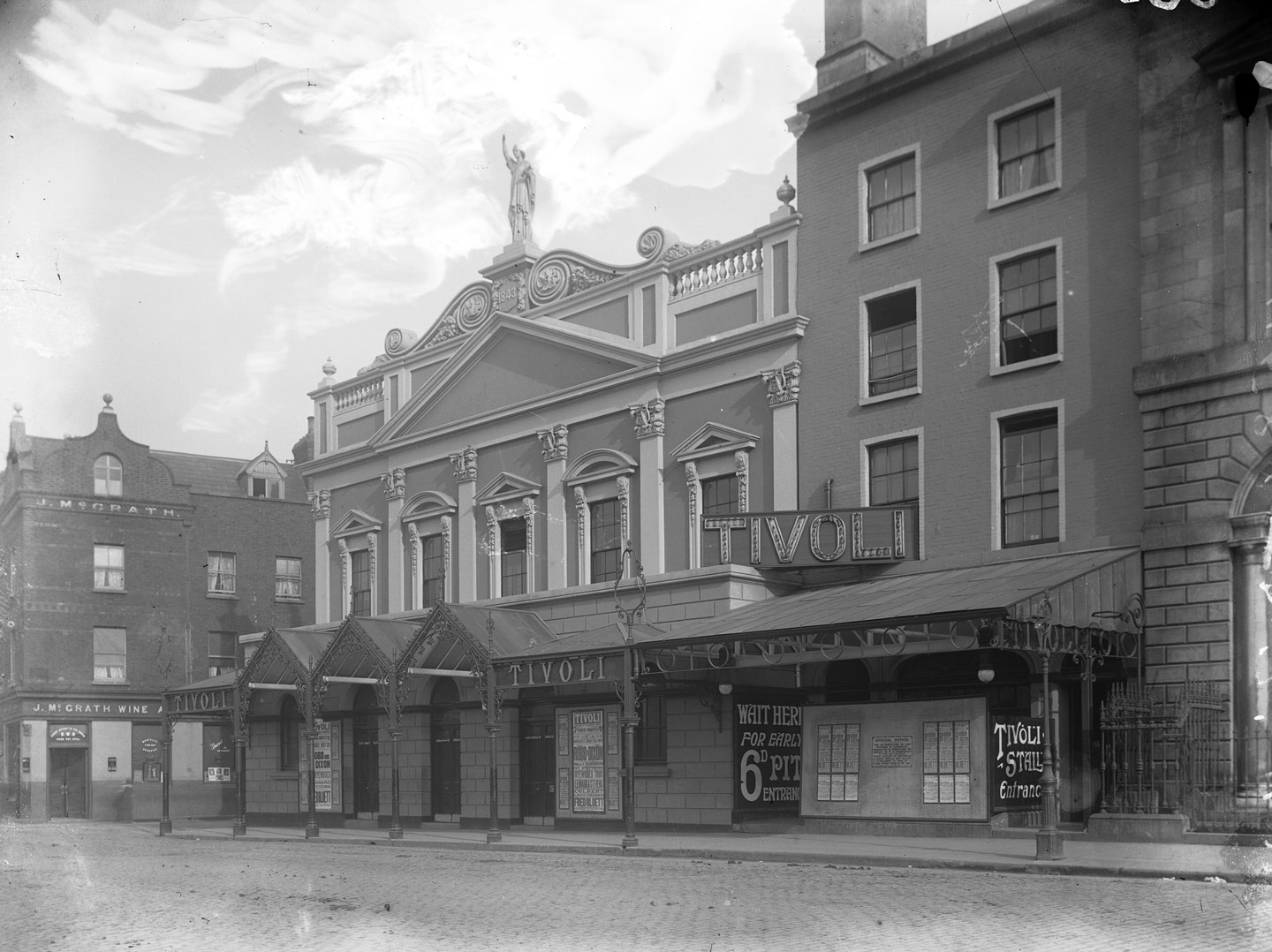Easter Week 1916: what should have happened?
Once the Easter Rising began around midday on Easter Monday, normal everyday life in the city came to a halt. Events planned across the city were cancelled because of the military situation and, from Wednesday morning, the restrictions on public movement caused by the introduction of martial law. We take a look here at those events and happenings across the city that were planned for Easter Week, but which never happened.
Theatre, cinema and art
In the theatrical world the Abbey Theatre had a whole programme
planned for Easter Week. On Easter Monday it featured two
performances of W.B. Yeats’
Kathleen Ní Houlihan
and W.M. Boyle’s
The Mineral Workers. From Tuesday onwards Boyle’s work was to be replaced by
the inaugural performances of T.H. Nally’s
The Spancel of Death. The Gaiety Theatre was to host a two-week-long residency by the
D’Oyly Carte Repertoire Company. It was to start on Easter
Monday evening with a performance of The Gondoliers and
then continue with a different Gilbert and Sullivan piece each
night.
The Theatre Royal was also due to start a two-week run of
performances. The headline act was the Irish-American comedienne,
Kitty Francis, who was leading 20 other performers in a show
entitled Mrs O’Malley’s Reception. Alongside
Francis was also going to be the singer Miss Mollie Wells, Charles
Mildare – a whistler and entertainer, and Scott and Frank
Wilson who would perform a cycling turn. In the Queen’s
Theatre there were to be two evening performances of ‘the
great French drama’, Napoleon and Josephine. At the
Tivoli Easter Monday saw the cancellation of its ‘Gigantic
Easter Attraction’ featuring John McNally in the
Borstal Boy, as well as performances from Fred Arthur
(Humourist and Mimic) and Fields and Coco (Eccentric Ragtime
Gymnasts). At the Coliseum there was supposed to be two evening
performances by Les Trombettas (Continental Comedy Duo), Tom
Stuart and his Burlesque Studies, and Footgers (an Anglo-French
comedian).
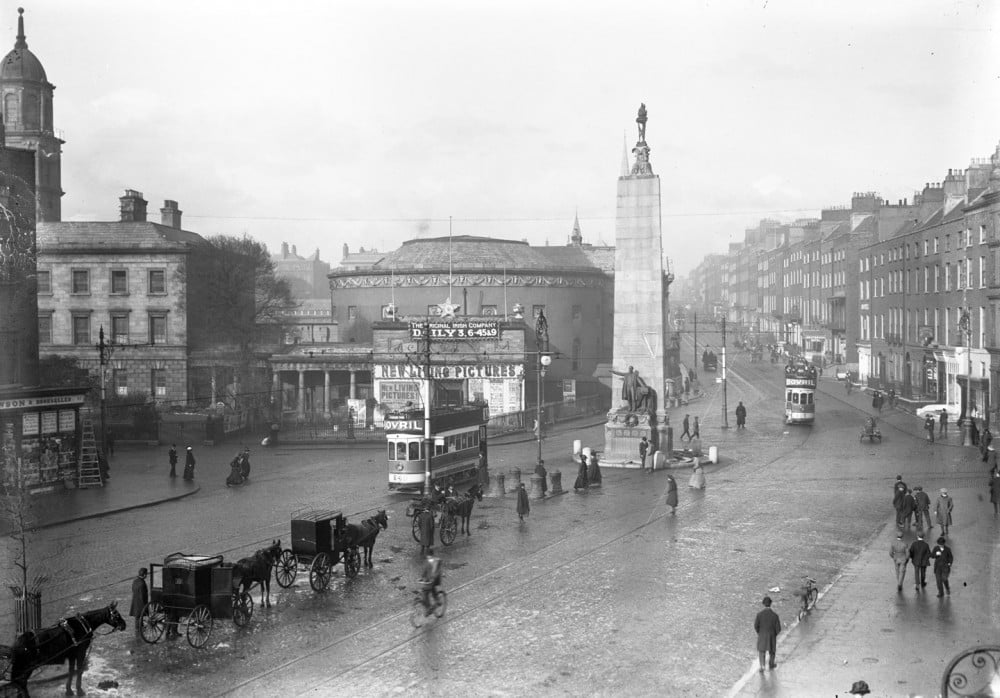
The Rotunda Room, located on the top of Sackville Street was closed once the fighting broke out on Easter week. (Image: National Library of Ireland, EAS_1681)
The cinemas across the city closed their doors, and the public wasn't able to watch The Mystery of the Cards, ‘an extraordinary, sensational 3 reel drama’ at the Rotunda Pictures, The Warrens of Virginia at the Bohemian in Phibsboro, or Charlie Chaplin in Shanghaied at the Pillar Picture Palace.
In the more highbrow world of art, the Royal Hibernian Academy, then on Lower Abbey Street, had to close its doors on its annual exhibition.
Sport
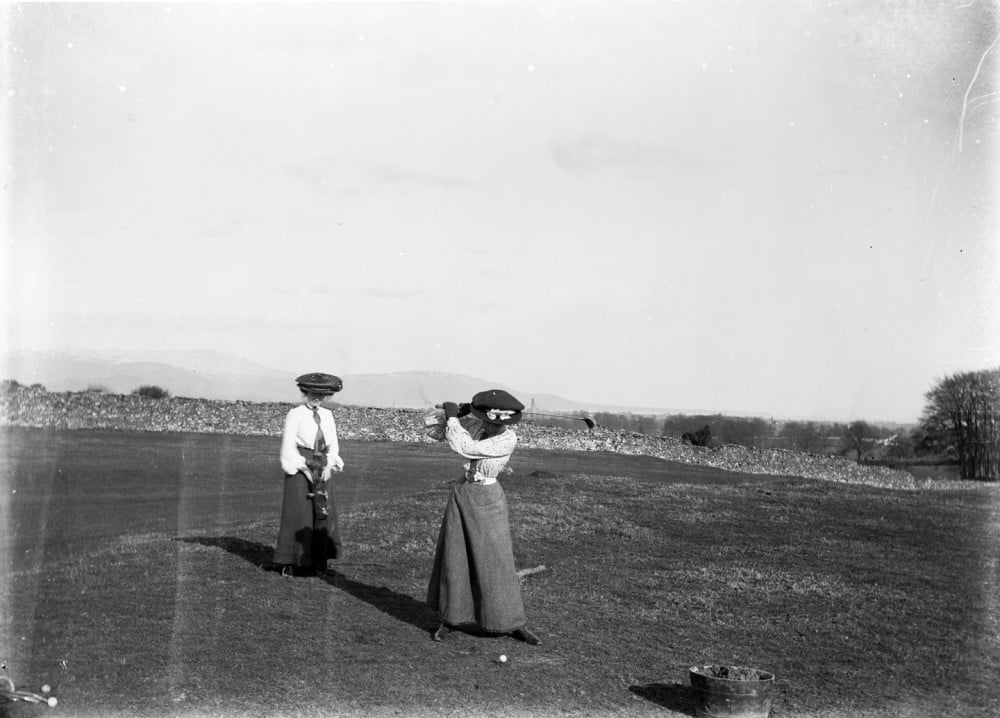
Lady golf club members were particularly affected by the events of Easter Week as their games were played mid-week (Image: National Library of Ireland)
In sport, while the Easter Monday horse race meeting at Fairyhouse went ahead, racing there and at Cork Park, Cashel and Clonmel was abandoned during the remainder of the week. Around the golf courses of Dublin, such as at Greystones, Lucan and Stillorgan, various competitions scheduled for the week were called off. This hit lady members particularly hard as it was most often their competitions that were played midweek. While rugby had abandoned its fixture list at the outbreak of World War One, the Leinster Senior League did continue in soccer, but as a result of military activity, its games scheduled for the following Saturday were cancelled meaning that neither Bohemians, Shamrock Rovers, Shelbourne nor Chapelizod would play.
City wide disruption
There were many other social and business gatherings that were halted because of the Rising. Mr and Mrs Leggett Byrne, for example, were unable to hold what was billed as ‘The Last Dance of the Season’ at the Gresham Hotel on Wednesday night.
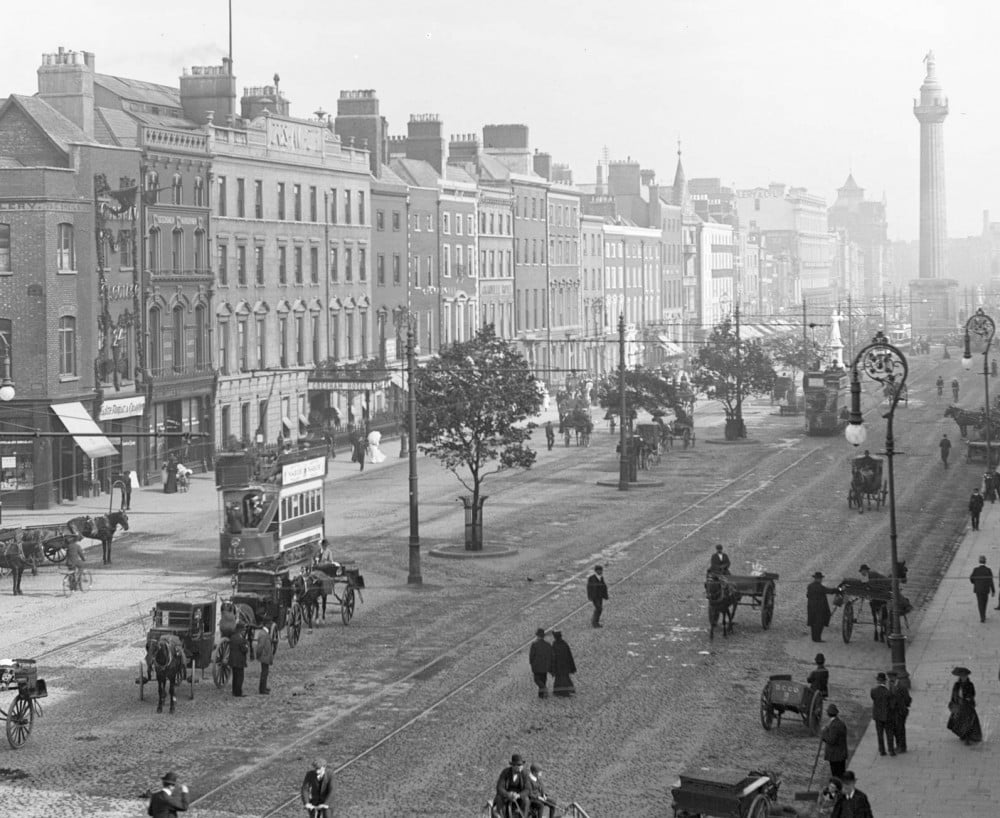
The Gresham Hotel on Sackville Street, left of centre. (Image: National Library of Ireland, L_CAB_06672)
In a more business vein, the annual meeting of the Meath Hospital and County Infirmary also scheduled for Wednesday, in the hospital on Heytesbury Street, was cancelled. Other cancellations included the Irish Drapers’ Assistants annual meeting at the Mansion House, the Catholic Girls’ Social Club and the opening of the annual Presbyterian Synod. The Royal Dublin Society Spring Show, which had opened on Monday and was supposed to run for the remainder of the week was called off, as was the accompanying exhibition by the Royal Horticultural Society of Ireland, its Great Spring Flower Show.
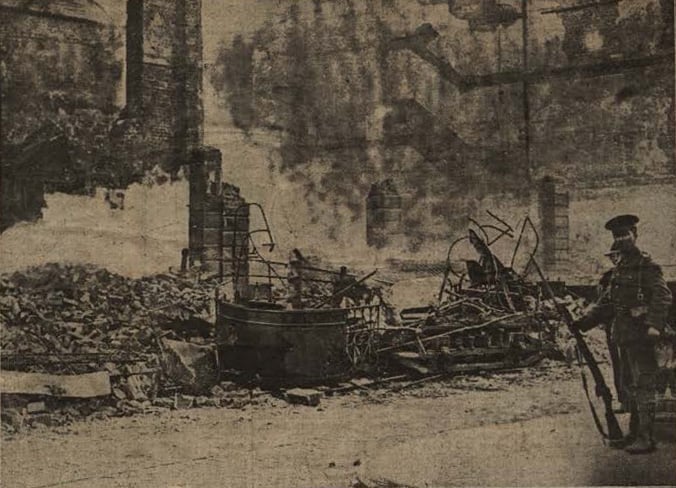
The smoking remains of a tram car in the city centre. Damage to the city's transport system made it difficult for civilians to enjoy everyday life. (Image: Military Press Bureau)
Add in problems with maintaining the transport infrastructure of the city, closed businesses, lootings, fires, martial law and problems with the food supply, Dublin was not a city that enjoyed what would have normally been a sociable and Spring-like Easter Week.

